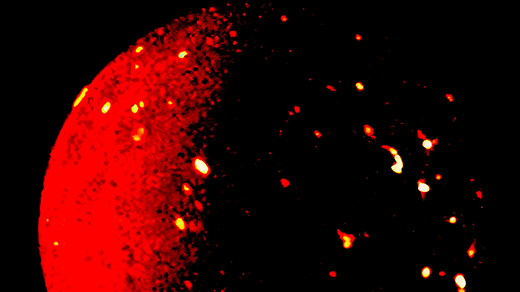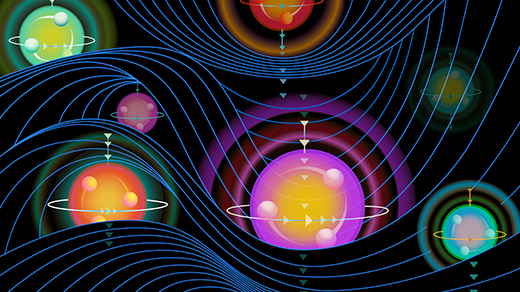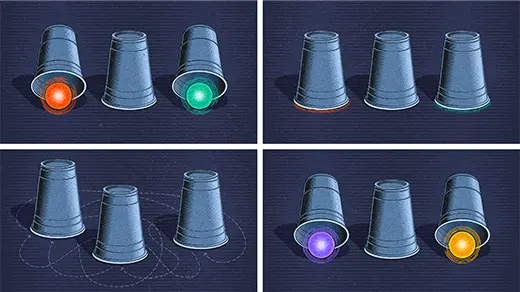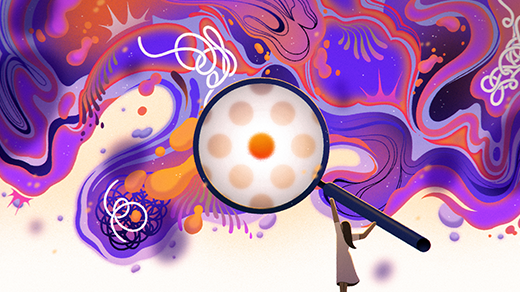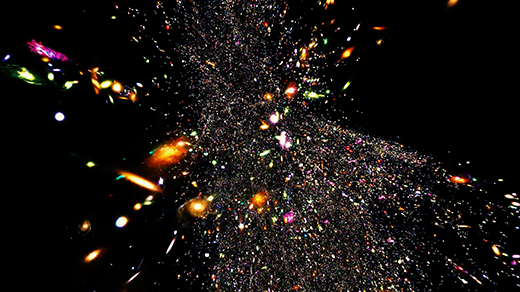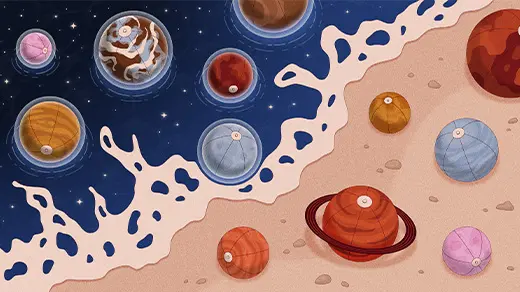What's up in
Physics
Latest Articles
What’s Going On Inside Io, Jupiter’s Volcanic Moon?
Recent flybys of the fiery world refute a leading theory of its inner structure — and reveal how little is understood about geologically active moons.
Improving Deep Learning With a Little Help From Physics
Rose Yu has a plan for how to make AI better, faster and smarter — and it’s already yielding results.
Can Quantum Gravity Be Created in the Lab?
Quantum gravity could help physicists unite the currently incompatible worlds of quantum mechanics and gravity. In this episode, Monika Schleier-Smith discusses her pioneering experimental approach, using laser-cooled atoms to explore whether gravity could emerge from quantum entanglement.
‘Paraparticles’ Would Be a Third Kingdom of Quantum Particle
A new proposal makes the case that paraparticles — a new category of quantum particle — could be created in exotic materials.
Why Everything in the Universe Turns More Complex
A new suggestion that complexity increases over time, not just in living organisms but in the nonliving world, promises to rewrite notions of time and evolution.
The High Cost of Quantum Randomness Is Dropping
Randomness is essential to some research, but it’s always been prohibitively complicated. Now, we can use “pseudorandomness” instead.
Is Dark Energy Getting Weaker? New Evidence Strengthens the Case.
Last year, an enormous map of the cosmos hinted that the engine driving cosmic expansion might be sputtering. Now physicists are back with an even bigger map, and a stronger conclusion.
New Conversations, Deep Questions, Bold Ideas in Season Four of ‘The Joy of Why’
Steven Strogatz and Janna Levin return for a new season on major scientific and mathematical questions of our time, with 12 all-new episodes and a new format.
The Road Map to Alien Life Passes Through the ‘Cosmic Shoreline’
Astronomers are ready to search for the fingerprints of life in faraway planetary atmospheres. But first, they need to know where to look — and that means figuring out which planets are likely to have atmospheres in the first place.
